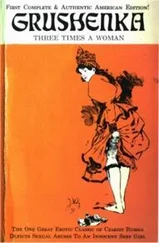“It’s me, Rudy,” he said.
“Hold on a moment, there’s someone at the door.”
Now that she knew who she was speaking to, her voice became a little less sullen, as if some wary reflex had reset her reaction mechanism to prevent her from letting slip any word that he could use against her in the next bout, although to tell the truth, it was his impression that Fanta never talked back but simply met his attacks with a stubborn silence, a distant, rather sulky look, her lips swelling and her chin drooping; he, Rudy, was well aware that she chose only too carefully the little she said, knowing any word of hers could provoke his outburst, just as he knew only too well that what truly angered him was the very indifference — so deliberate, so studied — of her expression, and that the crosser he became the more Fanta walled herself off and the more he got bogged down in his fury at her disingenuous nonchalance, until he couldn’t help spitting in her face those words he would later regret so desolately even if, as on this morning, he couldn’t be sure he’d really uttered them.
How hopeless it was, he thought, didn’t she understand that a few innocent, simple words from her, spoken with the requisite warmth, would have been enough to make him once more the good, calm, affable Rudy Descas that he’d still been, it seemed to him, two or three years earlier, not very practical minded, perhaps, but curious in outlook and pretty energetic for all that, did she not understand …?
“I love you, Rudy,” or “I’ve never stopped loving you,” or even — good enough—“I’m fond of you, Rudy.”
He felt himself blushing, ashamed at these thoughts.
She understood, all right.
No entreaty, no fit of anger (but weren’t the two of a piece where he was concerned?), would ever make her say anything like that.
He was convinced that even if he beat her up and smashed her face down on the rough floor she would still say nothing, being quite incapable even of telling a white lie just to get herself off the hook.
Through the receiver he could hear Fanta’s footsteps, dragging a little as she made toward the door, then Madame Pulmaire’s high-pitched, anxious voice followed by Fanta’s murmuring. Could he, even at that remove, discern an immense weariness in his wife’s voice, or was it merely the effect of distance and his own shame?
He heard the door slam, then the lethargic progress of Fanta’s feet once again, that weary, exhausted gait evident these days from the moment she got up, as if the prospect of another day in the house she refused obstinately to concern herself with (“Why do I have to do everything around here?” he often shouted in exasperation) hobbled her slender ankles with their dry, glossy skin, those same ankles that used to dash indefatigably in their dusty pumps or sneakers through the alleyways of Colobane toward the lycée where Rudy had first set eyes on her.
Back then those ankles had seemed winged, for how else could two slender, rigid, valiant reeds covered in gleaming skin so swiftly and nimbly transport Fanta’s long, supple, youthful, muscular body, how could they, he’d wondered rapturously, but for the help of two invisible little wings, much like those that made the skin between Fanta’s shoulder blades quiver gently below the neckline of her sky-blue T-shirt as he stood behind her waiting his turn in the teachers’ line at the cafeteria of the Lycée Mermoz, how, he’d wondered, as he gazed at the bare nape of her neck, her strong dark shoulders, her delicate tremulous skin …
“That was the neighbor,” she said laconically.
“Ah.”
And since she didn’t add anything, since she didn’t specify, in that tone of gloomy sarcasm she was apt to use, the reason why Madame Pulmaire had called, he surmised that the old girl had covered for him, after a fashion, by saying nothing about his telephone call, probably inventing some mundane excuse, and he felt relieved, though at the same time embarrassed and annoyed, at becoming complicit with Madame Pulmaire, in a way, behind Fanta’s back.
Suddenly he felt deeply sorry for Fanta, because wasn’t it, if not his fault exactly, at least his doing, that the ambitious Fanta of the winged ankles no longer flew over the reddish muddy streets of Colobane, she who, though still poor, certainly, and held back by many constraints at home but, in spite of all, on her way at the lycée as a full-fledged French literature teacher, wasn’t it his doing, with his lovesick gaze, tanned features, fair hair (a lock of which always kept falling over his eyes), his fine words and serious manner, his promise of a comfortable, intellectual, altogether elevated and attractive way of life, wasn’t it his doing that she’d given up her neighborhood, her town, her homeland (so dry, red, and very hot) to end up unemployed (he should have known that she wouldn’t be allowed to teach French literature here, he ought to have made inquiries and found out what the deal was and what the consequences would be for her) out in a quiet provincial region, dragging her leaden feet through a house a little better, to be sure, than the one she’d left but that she’d refused to grace with a moment’s thought, effort, or scrutiny (she whom he’d seen so patiently, methodically sweeping the rundown two-room apartment with sea-green walls she shared in Colobane with an uncle, an aunt, and several cousins, so patiently, methodically!): if it wasn’t his fault, wasn’t it his doing, Rudy Descas’s, if she seemed trapped and lost in the icy mists of a perpetual, monotonous dream?
He, with his tanned face, the tremendously persuasive force of his wooing, his suave manners, and the unusual splendor attributed over there to his blondness, that particularly striking quality …
“Don’t you want to know why I’m calling?” he asked at last.
“Not really,” she said after a moment, her voice no longer imbued with the listless utter disillusionment that had moved him, but now with something that was almost the opposite, the controlled, metallic, perfect mastery of her French accent.
“I’d like you to tell me why we had an argument this morning. Listen, I don’t know what started that off, all that …”
That particularly striking quality of his, he recalled in the ensuing silence, a weakly panting silence that sounded as if he were phoning a far-off country with rudimentary communications, his words needing all these slow seconds to arrive, though it was only the echo of Fanta’s anxious breathing as she pondered the best way of answering his question so as to safeguard he knew not what — he dared not imagine — future interests she might have (a bubble of anger suddenly exploded in his head: what possible future could she envisage that didn’t include him?), yes, he recalled, as he let his eyes wander over the green vines with their tiny bright green grapes, over the green oaks beyond them that the property’s new owners, those Americans or Australians (who fascinated and upset Mummy because she believed the vineyard should have stayed in French hands), had pruned so savagely until the trees looked humiliated, punished for daring to let their shiny, unfading foliage grow so dense as to partially conceal the once grayish, now blond and fresh stonework of what was, after all, only a large house, though of the kind on which people in these parts bestowed the respectful name of “chateau,” yes, that particularly striking impression that his own blondness, his own freshness, made over there …
“I don’t know,” Fanta said in a low, cold voice.
But he was convinced that she was only answering in the least compromising manner possible, and that to minimize the chance of committing herself to anything involving him in any way, be it by the merest exchange of words, had become the sole criterion of her frankness.
Читать дальше












